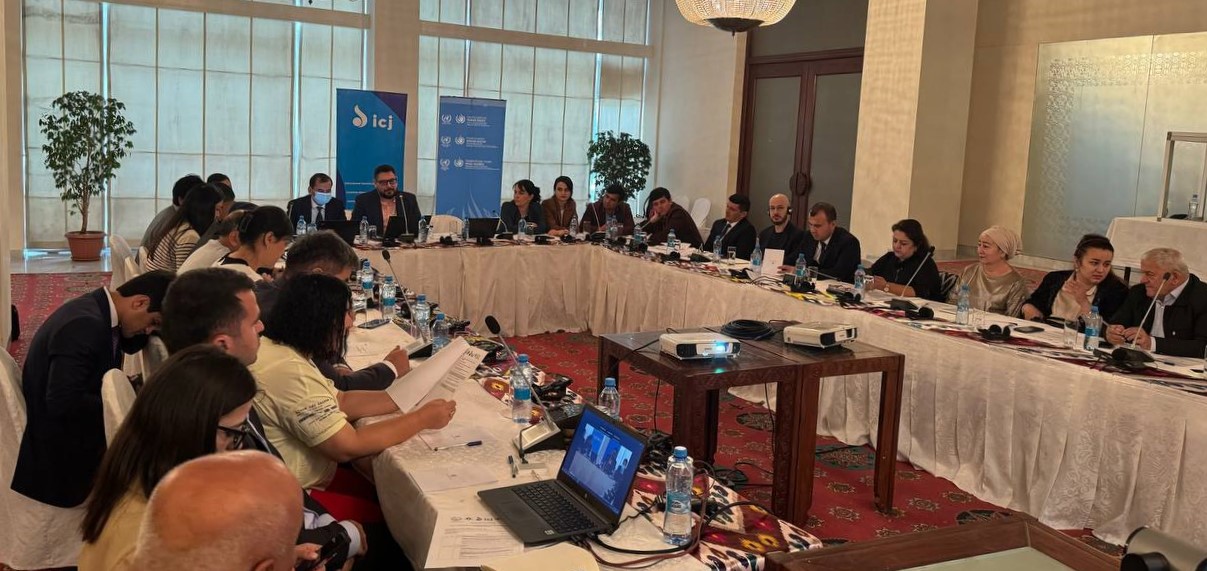The International Commission of Jurists (ICJ) convened a roundtable in Dushanbe, entitled “The Role of an Independent Court in Ensuring a Fair Trial,” aimed at advancing core rule of law concerns within Tajikistan’s judiciary, with a special focus on judicial independence, fair trial rights and torture and ill-treatment.
Held in partnership with the Supreme Court of Tajikistan, the UN OHCHR Regional Office for Central Asia (ROCA), and the Civil Society Coalition against Torture and impunity in Tajikistan, the event gathered high-ranking judges, legal professionals from Tajikistan, international experts, and civil society representatives. Discussions centred on significant barriers within the judicial system that impede fair trial guarantees, and considered prevalence of torture and ill-treatment in the administration of justice and systemic restrictions on defendants’ procedural rights.
Speakers underscored that, despite Tajikistan’s formal commitments under the UN Convention against Torture, the use of torture and other ill-treatment remains a persistent issue in criminal proceedings. Self-incriminating statements or other information obtained under torture, ill-treatment or duress are still frequently admitted as evidence, reflecting a troubling reliance on methods that fundamentally compromise the fairness of trials. Such practices undermine both judicial integrity and public trust in the legal system.
Participants also examined the limited application of “equality of arms” principle in Tajik courts, where defence rights are often not respected and restricted in a manner that favours the prosecution. This disregard for essential fair trial rights of defence is also accompanied by restrictions on defendants’ access to adequate legal representation.
Local legal professionals and ICJ experts emphasized the need for structural reforms to reinforce defence rights and ensure that information obtained by torture, ill-treatment or coercion is excluded as evidence in court proceedings.
The roundtable offered an important platform for legal practitioners and human rights advocates to exchange strategies for enhancing judicial independence and aligning Tajikistan’s legal framework with international human rights obligations. Participants highlighted the importance of creating institutional safeguards to protect judges from political interference and to foster a judicial environment free from coercion and undue influence.
Attachments: Agenda in three languages and a briefing paper




